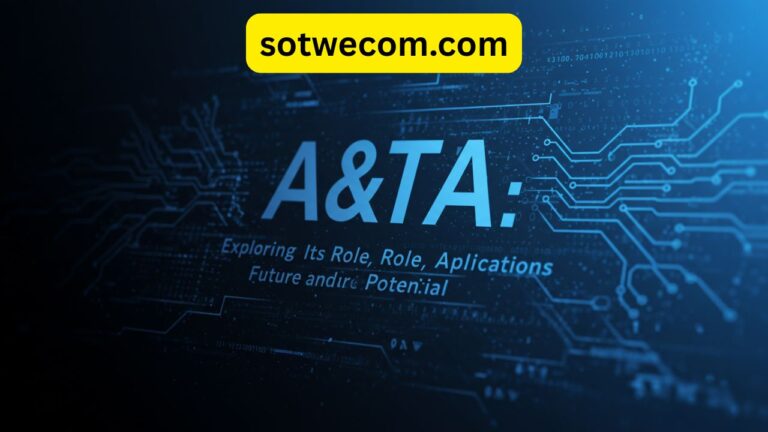Simpciry Art of Finding Clarity in a Complicated World
In today’s fast-paced society, where multitasking has become the norm and digital overload is unavoidable, the pursuit of simplicity has transformed into a necessity. This is where the idea of Simpciry comes into play. Simpciry is not just a word — it’s a philosophy, a mindset, and a practical framework that helps individuals, businesses, and even technology achieve balance by reducing unnecessary complexity.
By focusing on clarity, efficiency, and intentional choices, Simpciry is reshaping the way people live, work, and interact with the world.
What is Simpciry?
At its core, Simpciry represents the principle of simplicity in action. While minimalism emphasizes reducing physical possessions, Simpciry takes a broader view — it’s about cutting through noise and clutter in every dimension of life.
- In personal life, it means eliminating distractions and focusing on meaningful experiences.
- In business, it’s about designing systems, services, and workflows that are streamlined and customer-centric.
- In technology, it ensures that tools remain user-friendly, secure, and functional without overloading people with features.
Unlike other lifestyle movements that demand drastic change, Simpciry is about gradual, intentional improvements that create lasting results.
Why Simpciry is Relevant in the Modern Era
Modern living is paradoxical: while technology has made life more convenient, it has also made it overwhelmingly complex. Every day, people face information overload, endless digital notifications, consumer pressure, and societal expectations.
Challenges That Make Simpciry Necessary:
- Decision Fatigue – Too many options often lead to confusion and stress.
- Digital Overload – Excessive screen time and constant notifications drain mental energy.
- Cluttered Environments – Both physical and mental clutter reduce focus and creativity.
- Workplace Complexity – Overcomplicated processes lower productivity and morale.
- Unsustainable Lifestyles – Overconsumption and unnecessary commitments take a toll on well-being.
This is why Simpciry resonates deeply today — it offers a framework for decluttering life, streamlining decisions, and focusing on essentials.
Simpciry in Personal Lifestyle
Adopting Simpciry in your daily life creates space for growth, peace, and fulfillment. It’s about shifting from “more is better” to “less, but better.”
Ways to Apply Simpciry in Daily Life:
- Declutter Your Surroundings – A clean, organized home or workspace reduces stress and enhances focus.
- Simplify Daily Routines – Streamline your morning habits, meals, and schedules for efficiency.
- Limit Digital Noise – Unsubscribe from unnecessary emails, silence notifications, and curate your social media.
- Focus on Quality Relationships – Invest time in meaningful connections instead of spreading yourself thin.
- Practice Mindfulness – Being present eliminates mental clutter and enhances overall well-being.
Example: Instead of chasing endless to-do lists, a person practicing Simpciry might focus on completing just three important tasks per day — ensuring depth over breadth.
Simpciry in Business and Workplaces
Organizations often mistake complexity for sophistication. In reality, unnecessary complexity wastes resources, frustrates employees, and alienates customers. Businesses that embrace Simpciry, however, gain agility, loyalty, and growth.
Benefits of Simpciry in Business:
- Efficient Operations – Streamlined workflows reduce costs and errors.
- Customer Satisfaction – Simple, intuitive services improve user experience.
- Stronger Communication – Clear, jargon-free messages build trust with clients.
- Employee Productivity – Simpler processes empower employees to focus on meaningful work.
- Competitive Advantage – Companies that “keep it simple” stand out in cluttered markets.
Case in Point: Many successful global brands (like Apple and IKEA) thrive because their products embody Simpciry — elegant design, intuitive use, and clear value.
Simpciry in Technology
In the digital world, where apps and platforms often overwhelm users with features, Simpciry becomes crucial. Technology should simplify human life, not complicate it.
Principles of Simpciry in Technology:
- User-Friendly Design – Interfaces should be intuitive, requiring minimal instructions.
- Lean Features – Focus on essential functions rather than unnecessary add-ons.
- Smooth Performance – Lightweight systems reduce lag and frustration.
- Enhanced Security – Security should be simple but effective, avoiding overcomplicated steps.
- Accessibility – Technology should be inclusive, catering to people of all abilities.
Example: Think of Google’s homepage. Its minimalist design — a simple search bar — is the perfect embodiment of Simpciry in technology.
The Psychological Benefits of Simpciry
Beyond productivity, Simpciry has profound effects on mental health. Research shows that living in cluttered environments increases stress, while simplifying life promotes calmness and satisfaction.
Positive Impacts on Mental Health:
- Reduced anxiety by limiting overwhelming choices.
- Improved focus and concentration.
- A greater sense of control over time and priorities.
- Enhanced creativity due to less mental clutter.
- Stronger emotional resilience through balanced living.
In short, Simpciry nurtures both the mind and body.
How to Practice Simpciry: A Step-by-Step Guide
You don’t have to overhaul your life overnight to embrace Simpciry. Instead, focus on gradual steps:
- Evaluate Priorities – List out what truly matters to you in work, relationships, and personal goals.
- Declutter Spaces – Start with your home, office, or digital files. Keep only what adds value.
- Simplify Schedules – Say no to commitments that don’t align with your goals.
- Adopt Simple Tools – Use fewer, more effective apps and systems.
- Practice Gratitude – Focus on appreciating what you already have, reducing the urge for excess.
- Reflect Regularly – Check if your lifestyle, work, or tech choices align with Simpciry.
Simpciry vs. Minimalism
Though they sound similar, Simpciry and minimalism are not identical.
- Minimalism focuses mainly on reducing material possessions.
- Simpciry encompasses all aspects of life — thoughts, processes, relationships, and technology.
Minimalism is about “owning less,” while Simpciry is about “living better through clarity.”
The Future of Simpciry
As society continues to face information overload, workplace burnout, and digital addiction, Simpciry is becoming a global movement. Governments, businesses, and individuals are beginning to recognize the importance of clear communication, streamlined systems, and intentional living.
We can expect Simpciry to influence:
- Education – Simplified teaching models that focus on core understanding.
- Healthcare – Clearer patient communication and efficient systems.
- Business – More customer-centric, transparent services.
- Technology – Growth of lightweight, accessible platforms.
Simpciry is not just a lifestyle choice — it is becoming a necessity for sustainable living in the 21st century.
Final Thoughts
In a chaotic, fast-moving world, Simpciry is a beacon of clarity. It’s a reminder that life doesn’t have to be complicated to be meaningful. By focusing on essentials, streamlining choices, and eliminating unnecessary clutter, individuals and organizations can unlock greater peace, productivity, and purpose.
Simplicity has always been powerful — but Simpciry gives it a modern identity, one that embraces balance across lifestyle, business, and technology.
By practicing Simpciry, you don’t just simplify your world — you enrich it.





